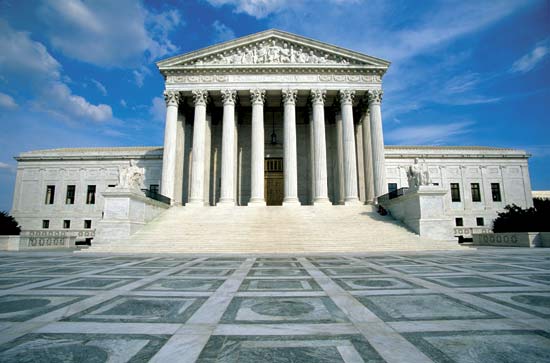On December 10, 2020, the Supreme Court held that plaintiffs are allowed to sue and seek monetary relief from government employees individually, under the Religious Freedom Restoration Act of 1993 (“RFRA”). The 8-0 decision in Tanzin v. Tanvir is a big step forward in allowing individuals to pursue remedies for burdens placed on their religious freedoms by government actors. CLCMA congratulates our colleagues at the Creating Law Enforcement Accountability & Responsibility (CLEAR) Clinic with CUNY School of Law, which represented the plaintiffs in this case.
The plaintiffs are three practicing Muslim men who alleged that FBI agents placed them on the No Fly List in retaliation for refusing to act as informants against their religious community. They filed suit against the agents under the RFRA, which prohibits the government from placing a “substantial burden” on an individual’s exercise of religion unless there is a compelling government interest with no less restrictive way to achieve the interest. The “RFRA secures Congress’ view of the right to free exercise [of one’s religion] under the First Amendment, and it provides a remedy to redress violations of that right,” described the Supreme Court.
In their complaint, the plaintiffs asked the district court to order the government to remove them from the No Fly List, and also sought money damages including amounts for airline tickets and lost job opportunities. After DHS advised the plaintiffs that they were removed from the No Fly List, the district court dismissed their remaining claims because it concluded that the RFRA did not allow them to sue the FBI agents in their individual capacities for money damages. The Second Circuit reversed the district court’s ruling, and the case was appealed up to the United States Supreme Court. The Court heard oral arguments in October, and issued its decision earlier this week.
The unanimous Court affirmed the decision of the Second Circuit, ruling that the plaintiffs can pursue their RFRA claims and seek monetary damages against the FBI agents in their individual capacities. This holding is significant to CLCMA’s mission of protecting its clients’ religious rights and challenging the government’s placement of individuals on watchlists. CLCMA is currently litigating several matters in this area in federal courts nationwide, and we look forward to the opportunity for our clients to benefit from the Supreme Court’s clarity in this area.
The opinion is available here: https://www.supremecourt.gov/opinions/20pdf/19-71_qol1.pdf.

